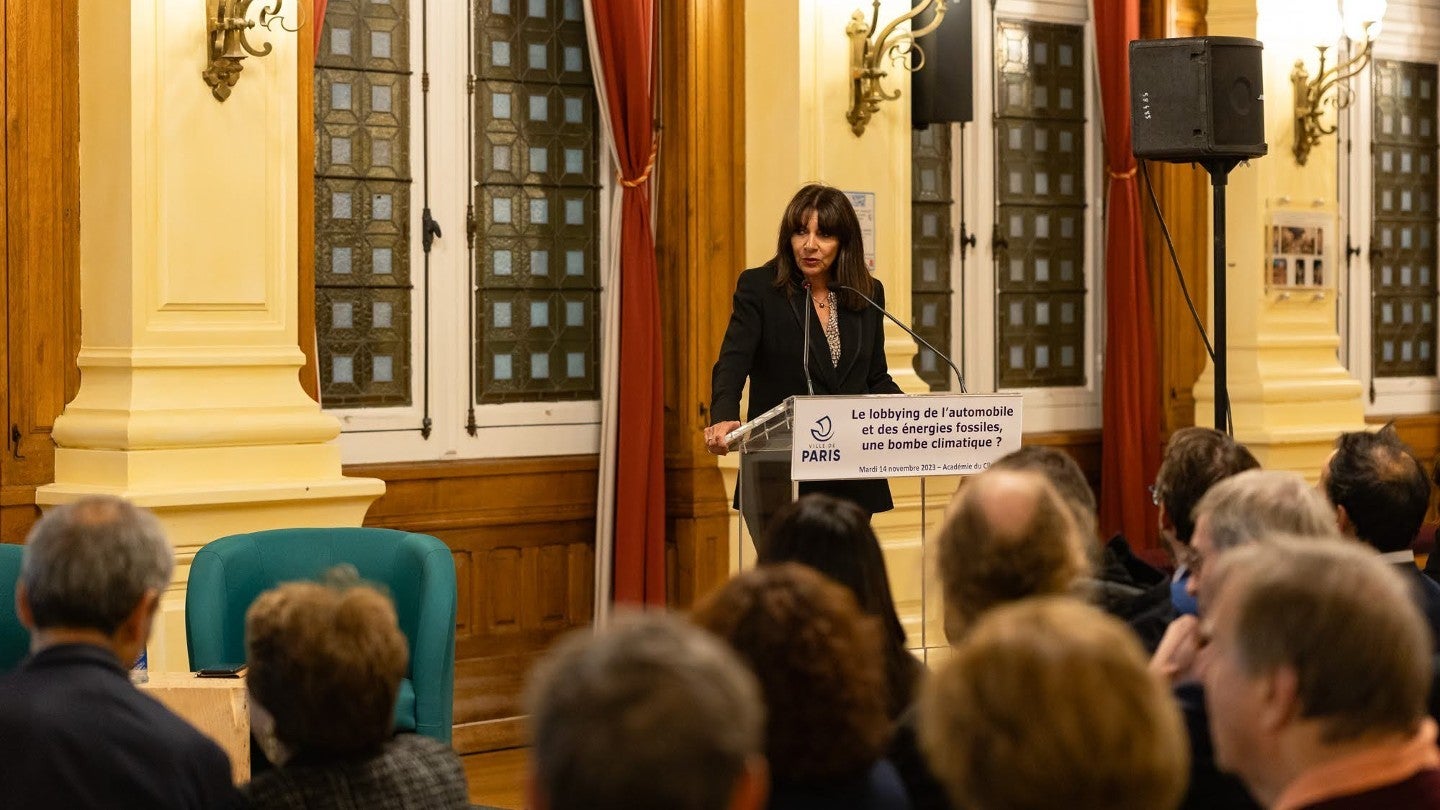
Paris Mayor Anne Hidalgo has said public transport will not be ready to host the Olympics and Paralympics, adding to concerns around the city’s management of large sporting crowds and investigations of corruption within the Olympic Organising Committee.
"There will be places where [public] transport will not be ready because there will not be enough trains and not frequently enough,” Mayor Hidalgo told the Quotidien talk show on TMC TV.
Hidalgo’s comments took aim at right-wing opponent Valerie Pecresse, president of the Ile de France Regional Council which oversees transport in the Paris region.
“We will be ready. It's a huge collective effort that shouldn't be denigrated by an absent mayor”, Pecresse responded.
#JeuxOlympiques&Paralympiques: Nous serons prêts avec @ratp @SNCFVoyageurs & @optile_idf. Je remercie tous leurs agents de leur mobilisation depuis des mois pour être à la hauteur! C’est un immense travail collectif qui ne devrait pas être dénigré par une maire absente @CBeaune https://t.co/sOU4HZLW5C
— Valérie Pécresse (@vpecresse) November 23, 2023
Leftist Hidalgo specified that the RER (regional express train) station at Porte Maillot in western Paris would not be ready for the Games.
Outcry at local metro services has mounted since hundreds of Parisians spent several hours trapped underground during rush hour in June.
False start for Paris 2024
The Paris Olympics, due to begin on 26 July 2024, have been beset with issues and controversy since the French capital was awarded hosting rights.
On June 20, police officers raided the offices of the Organising Committee for the Olympic and Paralympic Games in Saint-Denis. France’s financial crime investigative agency also searched the offices of Solidéo, the state-owned company contracted to build the Olympic venues.
The searches investigated possible favoritism and misappropriation of public funds in multiple contracts awarded by the Paris Bidding Committee (GIP 2024) and Organizing Committee.
The French government proceeded to draw criticism from the UN on 26 September when it announced that athletes representing France at the Paris 2024 Olympics would not be permitted to wear headscarves.
“Dismissing religious beliefs and forcing athletes to conform to government-imposed standards impacts society far more profoundly than just at the elite Olympic level”, according to Jacob Kemp, analyst at GlobalData Sport (Sportcal). “Its repercussions filter down to grassroots sport of all types.”
Kemp, however, does not believe this succession of issues will impact Olympic sponsorship deals.
“The biggest deals are linked to longer-term partnerships, and once the Games begin, the noise around these types of issues will almost certainly drop into the background”, Kemp says. “A home Olympics offers an audience unlike anything else and reaches a global audience that few, if any sports competitions can match. Sponsors will continue to see the benefits of the partnerships, attaching themselves to emotive experiences and future historical sporting moments.”
Earlier this month, French brand Fitness Park became the most recent addition to the Olympic sponsor list.
French police under scrutiny
Concerns over Olympic sponsorship may have abated, but concerns around heavy-handed policing tactics have not.
The city has acquired a reputation for crowd mismanagement. At the 2022 UEFA Champions League final, French riot police teargassed Liverpool FC ticket holders on their way into the Stade de France. The match was delayed by 38 minutes, and a disaster narrowly averted.
In the aftermath, UEFA and the French police claimed that ticketless fans were to blame. This was dismissed after an inquiry, and mass refunds were issued.
All eyes will be fixed on stewarding and policing tactics at Paris 2024. It has failed its first two ‘dress rehearsals’ at full crowd capacity, struggling to cope with the mass of spectators trying to enter stadia.
The Olympics holds the power to boost national reputation, spur local investment, and project international unity. Paris 2024 can still be remembered for the right reasons – but local politicians, the French police, and the Organising Committee must steady the ship to ensure it is not remembered for the wrong ones.



